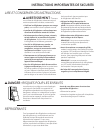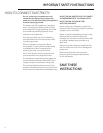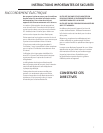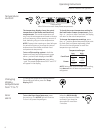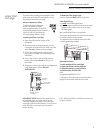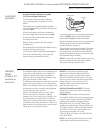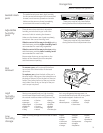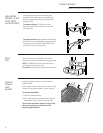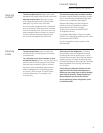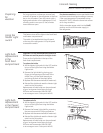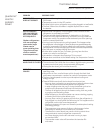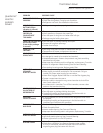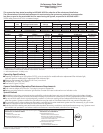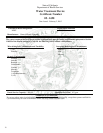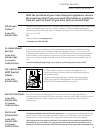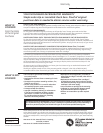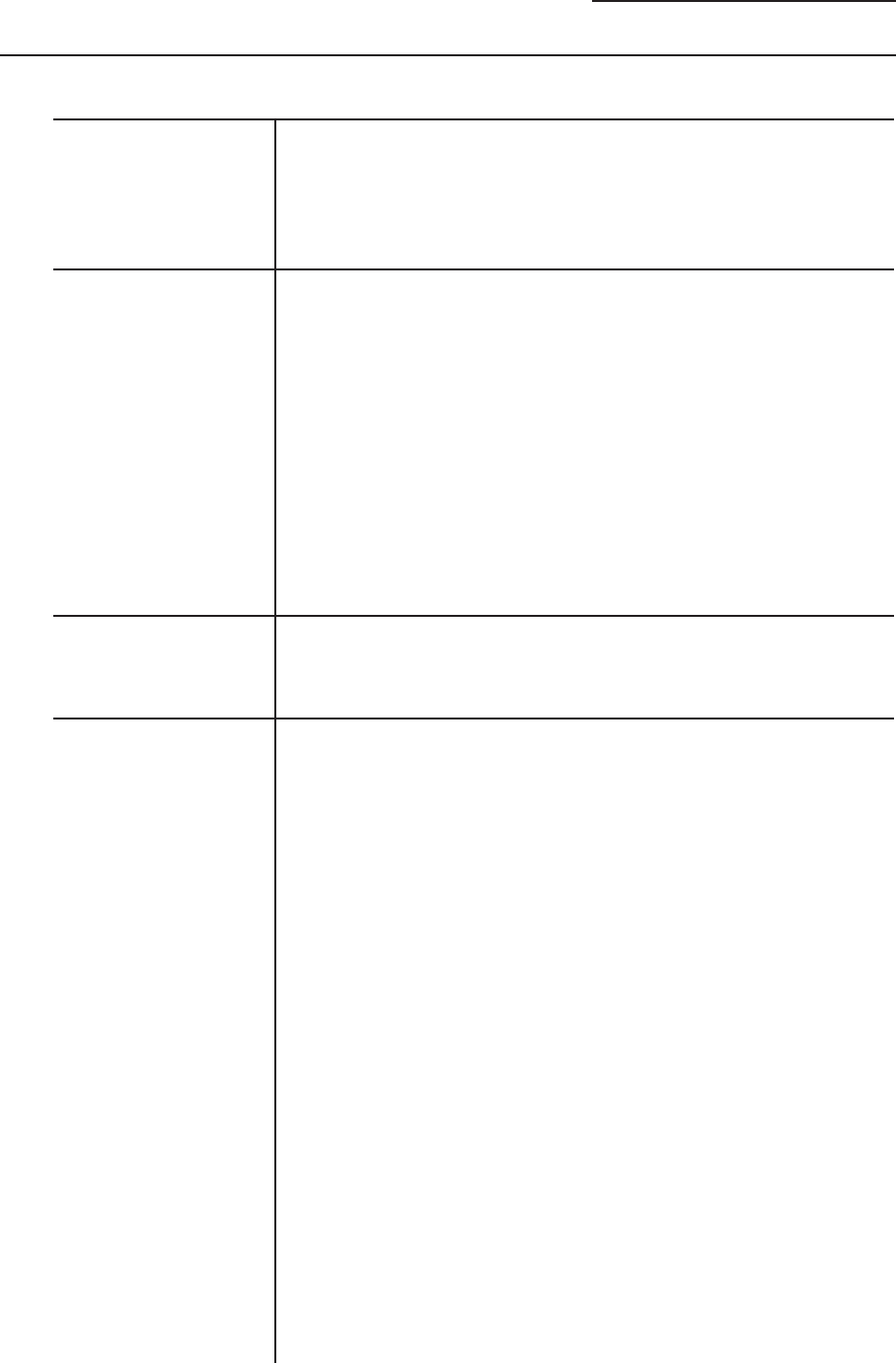
PROBLEM POSSIBLE CAUSE
REFRIGERATOR • May be in defrost cycle when compressor does not operate for about
DOES NOT OPERATE 30 minutes.
• Temperature control in the OFF position.
•
If interior light is not on, refrigerator may not be plugged in at wall outlet.
• The fuse is blown/circuit breaker is tripped. Replace fuse or reset
the breaker.
MOTOR OPERATES • Normal when refrigerator is first plugged in. Wait 24 hours for the
FOR LONG PERIODS refrigerator to completely cool down.
OR CYCLES ON AND
• The new variable speed compressor is designed to run for longer
OFF FREQUENTLY
periods of time to optimize efficiency and noise. You may notice the
compressor and/or fan speeds accelerate based upon door openings
and/or increased food loads.
• You may hear the fans spinning at high speeds. This happens when
the refrigerator is first plugged in, when the doors are opened frequently
or when a large amount of food is added to the refrigerator or freezer
compartments. The fans are helping to maintain the correct temperatures.
• Door left open or package holding door open.
• If either door is open for over 3 minutes, you may hear the fans
come on in order to cool the light.
• Hot weather or frequent door openings. This is normal.
•
Temperature controls set at the coldest setting. See Temperature Controls.
THUMPING SOUND • This is a normal operating sound.
WHEN DOOR IS CLOSED
• The mechanism that closes the door makes a slight thumping sound as
it passes over its lever point, at approximately 80 degrees.
• Closing the door slowly will minimize the sound.
OPERATING • Refrigerator is so quiet, that most of the time you will hear low or no
SOUNDS operating noise.
• Normal fan air flow—one fan blows cold air through the fresh food
and freezer compartments—another fan cools the compressor motor.
• The fans change speeds in order to provide optimal cooling and
energy savings.
• These NORMAL sounds will also be heard from time to time:
– You may hear a whooshing or gurgling sound when the doors close.
This is due to pressure equalizing within the refrigerator.
– A water dripping noise may occur during the defrost cycle as ice
melts from the evaporator and flows into the drain pan.
– The flow of refrigerant through the freezer cooling coils may make
a gurgling noise like boiling water.
– Water dropping on the defrost heater can cause a sizzling, popping
or buzzing sound during the defrost cycle.
– You may hear cracking or popping sounds when the refrigerator is
first plugged in or during/after the defrost cycle. This happens as the
refrigerator cools to the correct temperature.
– Electronic dampers click open and closed to provide optimal cooling
and energy savings.
– The compressor may cause a clicking or chirping sound when
attempting to restart (this could take up to 5 minutes).
– The electronic control board may cause a clicking sound when
relays activate to control refrigerator components.
– Ice cubes dropping into the bin and water running in pipes
as icemaker refills.
– The icemaker water valve will buzz when the icemaker fills
with water.
15
Questions?
Use this
problem
solver!
(Modern refrigerators
with more storage
space and a larger
freezer require
more operating time.
They start and stop
often to maintain
even temperatures.)
The Problem Solver
Bottom Freezer Refrigerator



